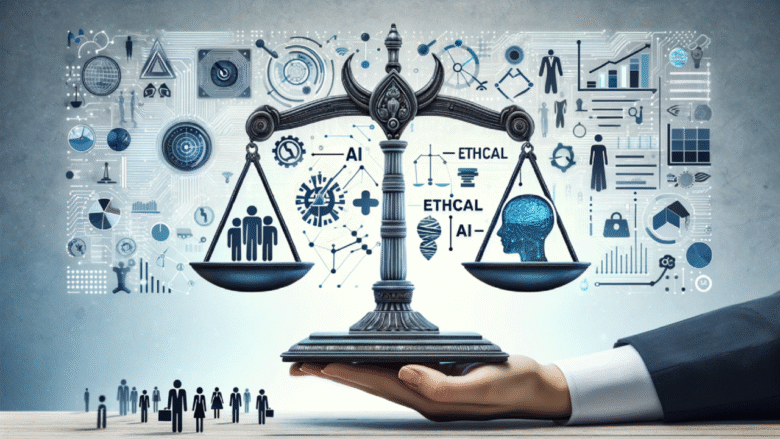
Responsible innovation occurs when innovators prioritize speed and profit over safety and ethics. Think of the hoverboard that caught fire or the pesticide that killed birds while altering ecosystems – both examples of irresponsible innovation.
Businesses that prioritize responsible innovation are building trust with both consumers and investors while also attracting top talent who seek work with purpose-driven businesses.
1. It’s the Right Thing to Do
No matter whether they’re creating the next generation of self-driving cars or developing health tracking methods, innovators must find ways to combine excitement and creativity with ethical standards. That is why governments and regulatory bodies must ensure innovation meets societal well-being – this will prevent disasters while keeping engineers focused on creating technologies that truly improve lives rather than making profit-maximizing designs for reselling purposes.
Responsible innovation is a framework designed to encourage researchers and businesses to consider the wider impacts of their projects, from unintended negative consequences to barriers to research. It involves several principles such as reflection (examining implicit values, assumptions and goals that drive research and innovation), inclusive deliberation (involving diverse viewpoints regarding potential societal implications of innovations), responsiveness (taking account of stakeholders interests in addition to researchers’) and risk management (considering potential risks and opportunities).
Research suggests that when businesses implement these dimensions, they can increase public perceptions that their science and innovation are socially responsible. Our survey suggests that reflection, inclusiveness and responsiveness have particularly high levels of impact for increasing public expectations of responsible outcomes; risk management had relatively lower impacts; however, further investigation may reveal how risk management is perceived by the public.
2. It’s the Right Thing to Do for Business
Responsible businesses that put innovation at their core can create products and services with lasting value for customers, shareholders and stakeholders alike. Furthermore, this approach to business creates trusting relationships among them which provide a solid platform for future success.
Responsible innovation encompasses an assessment of research and innovation’s wider impacts. This practice seeks to ensure unintended negative consequences are avoided, barriers are reduced in terms of dissemination, adoption and diffusion and positive societal and economic benefits are realized fully. Responsible innovation calls for integration and embedding multiple dimensions such as reflexivity, inclusion, accountability and governance into an overall research and innovation system.
Innovations that are launched without sufficient consideration often have unintended repercussions for people and the environment. DDT (dichloro-diphenyl-trichloroethane), for instance, was initially heralded as a miracle product due to its effectiveness against mosquito-borne diseases; however, over time its toxic effects became known and DDT was eventually banned in the 1970s.
Focusing on profitability is certainly important, but business leaders should also strive to strike a balance between profit, social impact and environmental sustainability. One way of accomplishing this goal is through responsible innovation practices such as developing Guiding Principles at either enterprise or product levels; creating guardrails against unintended effects may also prove helpful in this endeavor.
3. It’s the Right Thing to Do for Society
AI may be making headlines these days, but we still don’t fully know its effects or its use for good or evil. Businesses should establish principles to guide AI development and use; there’s still time.
An inclusive multi-stakeholder council that brings together governments, academics, industry experts, and non-profits is the best way to anticipate and meet future challenges head on. Such an organization will lay out norms for responsible innovation that maximize benefits while mitigating risks.
Companies should go beyond merely creating an ethical innovation policy to be truly ethical: they should also be clear with customers and stakeholders regarding the role AI is playing in products, services and operations, working closely with legal and privacy teams on creating disclaimers that highlight when content has been generated by AI technology or is affected by it.
Finally, organizations should set up accountability frameworks to ensure they are regularly evaluating and updating their AI systems, maintaining high ethical standards while preventing “AI ethics washing” (similar to greenwashing in sustainability terms). Report on their responsible innovation initiatives with credible data so any claims made can be supported.
4. It’s the Right Thing to Do for the Future
Artificial Intelligence, machine learning and large-language models (LLMs) have had an immense effect on our world. As AI becomes an ever-increasing part of businesses, technologies, and everyday life, the ethical considerations surrounding this technology become ever more complicated.
Humans create, design, develop, distribute and monitor AI systems – it is therefore imperative that they are developed with ethics in mind to ensure they don’t discriminate against certain groups, breach privacy or intellectual property rights or are incomprehensible to humans.
Ethical AI is essential for the long-term success of any company. Communicating how AI is being utilized ethically within each business and what their internal values and policies are are crucial components.
Establishing trust with consumers, reducing misinformation and misunderstanding, mitigating potential threats like deepfakes, and making sure internal teams are all working toward the same goal is all essential components of success.
Companies should create an AI Ethics Council comprised of representatives from governments, research and academia, industry experts and non-profits in order to define norms for responsible development, deployment and use of AI technologies. This will make it easier to anticipate and manage any risks that might emerge; creating an environment in which its benefits outweigh its risks.




